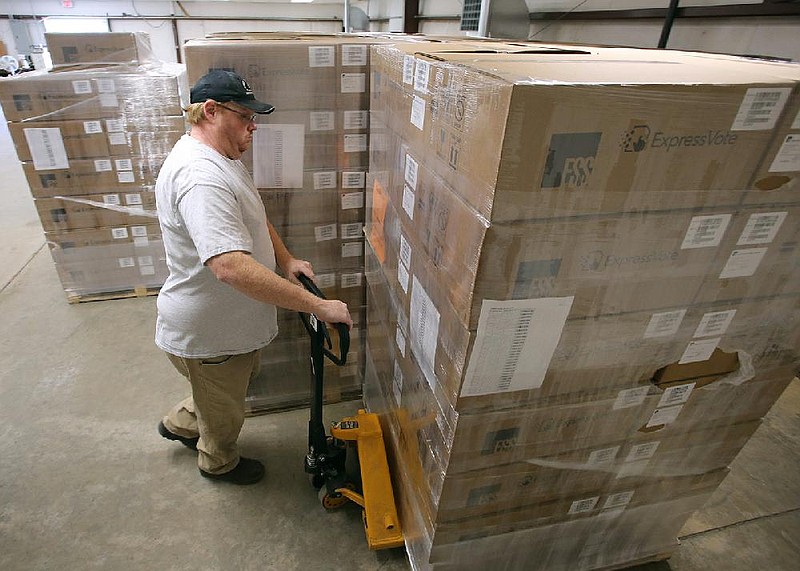A former Congressional candidate, suing to stop Arkansas election officials from using bar-code voting machines, does not have grounds to include the ExpressVote machines' maker in the litigation, a Pulaski County Circuit judge has ruled.
Judge Tim Fox on Tuesday dismissed Election Systems and Software LLC from the three-month-old suit but left open the possibility that the Nebraska-based manufacturer could be sued if Conrad Reynolds can show evidence of wrongdoing by the company.
Election Systems' lawyer Kevin Crass with the Friday Firm had argued that the company should be dropped from the lawsuit because the machines complied "with all applicable law and standards" and the litigation included no allegations Election Systems had broken any laws.
The remaining defendants are Republican Secretary of State John Thurston and the State Board of Election Commissioners. State records show the secretary of state has paid out $331,720 to Election Systems, with $315,000 in election-related services and $16,720 in technical services.
Reynolds, a Conway Republican and retired U.S. Army colonel, leads lobbying group Arkansas Voter Integrity Initiative Inc. which filed suit in December claiming that the machines do not comply with state law. Reynolds failed in last year's primary challenge to incumbent Rep. French Hill. He similarly lost to Hill in the 2014 Republican primary.
The suit alleges the machines fall short under a provision of Arkansas Code 7-5-504 that require such machines "shall permit the voter to verify in a private and independent manner the votes selected by the voter on the ballot before the ballot is cast." Likewise, the machines do not comply with the federal Help America Vote Act of 2002, which governs federal elections, the suit states.
ExpressVote converts a voter's cast ballot into a bar code that is counted by a DS200 tabulator made by the company but "the most ordinary and common voters cannot read a bar code to determine if the ExpressVote has properly interpreted the votes cast by the voter or if the ... tabulator can properly process and count the votes cast," the lawsuit states. And since voters can't read the bar code, they can't tell if their vote was coded the way they intended to vote or whether it was counted the way they wanted it to be, according to the lawsuit.
"[T]his court should declare that the ExpressVote and DS200 do not comply with Arkansas law because the voter cannot independently verify the votes selected by the voter on the ballot prior to being cast by the voter as the ordinary and common voter cannot read bar codes," the suit states.
